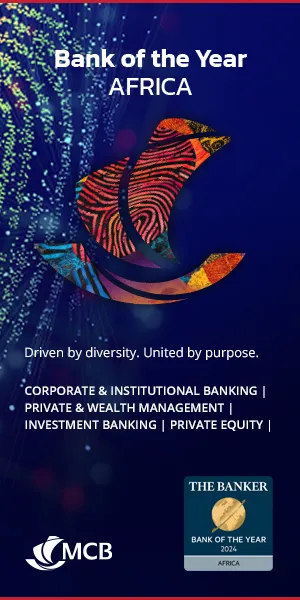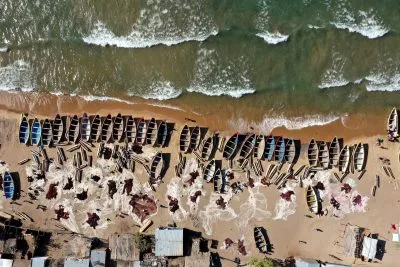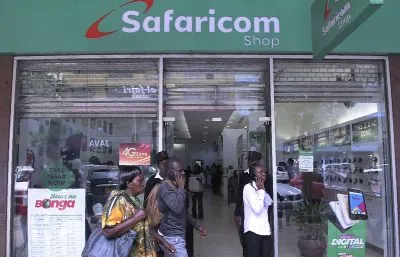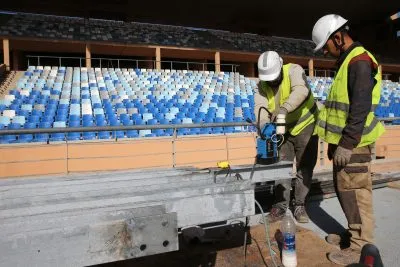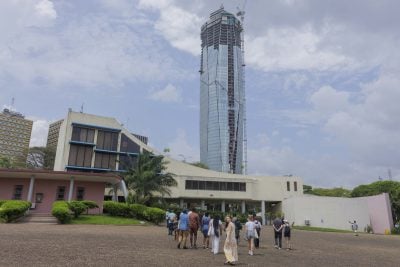What is the significance of this contest for Kenya and East Africa?
Charlie Mitchell: It’s really vital, a lot has been made of historical post-election violence in Kenya, and this is seen as a real test of East Africa’s cornerstore democracy: its economic, diplomatic and political powerhouse. A US official recently described Kenya as an anchor in a troubled region, and that’s very how much it feels.
It’s really important that this is election is carried out smoothly, that there’s no post-election violence, that the result is not questioned or if it is that it’s done so safely and fairly in the courts.
The implications of the Kenyan election go far beyond just Kenya. Democracy very much feels like it’s in decline in East Africa, or at least authoritarianism is on the march, and Ethiopia still has a terrible war, more dissidents are being jailed in Uganda, Paul Kagame in Rwanda has said he intends to stay in power for another 20 years, and Somalia just elected a new president but it wasn’t a one-person one-vote election – he was selected by legislators because it wasn’t safe to have one.
So Kenya really stands as a beacon of democracy in the region and economically it’s absolutely vital too. This is very important not just for the people of Kenya and East Africa but the whole world.
What different visions of Kenya are being offered by Raila Odinga and William Ruto?
There’s a style and substance difference.
If we start with their origins, William Ruto has made a big point of the fact he was a street hawker who sold chickens and went on to own a chicken-selling company. He then became a teacher and went into politics. He describes himself as a self-made man. He loyally served Daniel Arap Moi, who was Kenya’s second president, he’s been in politics a long time, and if you ask his rivals he’s accumulated a lot of wealth in that time. He is running a very populist campaign, promising to tear down Kenya’s dynasties and the “deep state” and to elevate its hustlers and the people at the bottom of the pyramid.
Raila Odinga couldn’t be more different. He’s the son of Kenya’s first deputy-president, he was a prime minister in the past, he’s a veteran candidate, this is his fifth time running for president and Ruto’s first. He’s extremely well-known – loved and adored by his supporters and loathed by detractors.
But there’s a third person in this race and that’s Uhuru Kenyatta, the incumbent, who’s barred from seeking another term by the constitution. He had initially anointed Ruto as likely successor and made him his deputy. They fought and won two elections. Ruto was in line to succeed Kenyatta and then they had this massive falling out – the precise reason they fell out is not really known although there are all sorts of rumours about it.
But Kenyatta subsequently had a famous handshake with Raila Odinga and backed him to succeeed him as president. That has caused years of dysfunction at the top of Kenyan politics, with president and vice-president slagging each other off constantly and undermining each other. Whatever happens in the election it’s a chance for Kenya to move past that serious dysfunction.
If we move towards policy, Ruto has this bottom-up economic model to empower those at the bottom. To that end he said he’s going to publish government contracts with the Chinese. Kenya has a new expressway in Nairobi and a new train from Mombasa to Nairobi, both build by the the Chinese, and contracts have not been published. He’s also promised a development fund for communities to get the jobless into work.
Odinga by contrast is focusing more on social policies and less on economic strategy. So it’s more about free healthcare, free university education and schools for all who want it. He says he’s going to give 6,000 Kenyan shillings [$50] to the most vulnerable families in Kenya. He’s interested in the manufacturing sector, he wants to boost growth by making it an easier place to do business.
You’ve got classic stuff – both will say they are going to tackle corruption and will accuse the other of corruption, which the other denies. They say they will tackle conflict with pastoral herders and subsidise fertilisers because agriculture has taken a real hit. They’re going to look out for Kenya’s legions of smallholder farmers who are struggling.
In Kenyan politics big personalities, ethnicity and bundles of cash have long trumped issues and policy. This is no different. There are many parallels between the policies of the two front-runners but this is coming down to a clash of personalities and styles.
What will the investment community be looking out for in this election?
Ruto is more of a wildcard because he’s running a populist campaign – he’s promising to sort out those at the bottom – so that automatically makes Odinga, who has the backing of the president, the continuity candidate.
Under Kenyatta, foreign investment in Kenya has risen and a bunch of companies and multinationals have set up in Nairobi and made it a regional hub – General Electrics, General Motors, Facebook, Google. Enormous companies.
What businesses like most is security and stability and so Odinga is the safest candidate because he is expected to continue the work Kenyatta has done.
Ruto marks a real break from the current regime and that I suspect makes Odinga a safer bet for international investors, but the possibility of things going pear-shaped after the election, of disputed results, of perhaps even violence, is very worrying to the business community in Kenya and internationally.
As a foreign diplomat said to me recently, what matters beyond what companies and government say is that Kenyans accept the results of election whoever wins and that will make Kenya a stable place to do business. It has a lot of talent, it’s extremely well-situated, Nairobi is an impressive capital with good infrastructure. I don’t see Kenya becoming a less desirable place no matter the result but what business clearly doesn’t want is months and months of wrangling, tension and conflict.
How has the organisation of the election been, have the election authorities managed to stay above the fray?
I would say no, but it’s not necessarily their fault.
Often it seems with these institutions, it’s more cock-up than conspiracy. Things have been a little bit tense lately, but the main point is that there is extremely low trust in Kenyan insitutions and the IEBC, the electoral commission, is no different.
Both of the main candidates have challenged or attacked the IEBC at certain points during the campaign, making accusations about irregularities. The truth is that there are always chances for irregularities – machines can fail – and that sets up a risk someone will say the election wasn’t freely carried out.
The other thing is that the polling shows the result is very close, the latest IPSO poll has Raila Odinga on 47%, Ruto on 41%. The electoral system in Kenya is like that of France – one candidate has to get 50% in the first round to avoid a run-off. That poll suggests neither will get 50% which means Kenyans will have to vote again in a run-off, which will prolong the process and could produce more opportunities for candidates to say something had gone wrong. And there could be issues with counting and verfying.
A saving grace perhaps is that Kenya has a very strong judiciary. There’s more belief and trust in the judiciary than in the electoral commission, institutions and people. While both candidates have said they will not challenge the result, the hope is that if they do they will do it through courts and there is some belief among Kenyans that the courts will decide that fairly.
I think it’s very unlikely we’ll see a repeat of what happened in 2007 when more than 1000 people were killed in post-election violence. No one wants anything bad to happen and everyone says they are very determined to ensure as best they can that there is no violence.
On the other hand, we have a massive surge in disinformation online. Kenya is adding social media users by the millions.
What are the must-win areas for the candidates?
Places like Mombasa and the coastal regions in the east, Narok in the southwest which borders Tanzania. Laikipia which is central-north and full of farmers.
The key area is the Mount Kenya region as well as Nairobi, where there are so many votes. The Mount Kenya region is very interesting, that’s a Kikuyu stronghold. Every president of Kenya has been a Kikuyu including Uhuru Kenyatta, but fascinatingly this is the first where neither of the front runners is.
Ruto is a Kalenjin and Raila Odinga is a Luo. The Mount Kenya region is a Kikuyu stronghold so they both very much need to win lots of votes from Mount Kenya to get over the line. And despite the fact neither is a Kikuyu they’ve both selected Kikuyu running mates.
Some say the fact that neither is a Kikuyu means that at least in Mount Kenya this is an election about ideas rather than ethnicity – historically Kenyans have voted along ethnic lines but there’s no reason to in this case in Mount Kenya because both have Kikuyu running mates and neither of the candidates are Kikuyu.
Who are the running mates?
If we look at the running mates they couldn’t be more different, Raila Odinga’s running mate is Martha Karua, she’s a long-time veteran social justice and women’s rights campaigner, a lawyer who is highly respected and walked out of a previous government because she felt corruption was too high. She’s promised to crack down on corruption, she’s an experienced technocrat.
William Ruto’s running mate is Rigathi Gachagua, he is a business man, he is facing charges of corruption which he denies, and that has made the election about corruption in a way. He is a sort of self-made man, extremely wealthy, but like Ruto he is promising to look out for those at bottom of the economic pyramid. He obviously sees himself as a hustler. So that makes it very interesting.
The Mount Kenya region would traditionally back Uhuru Kenyatta so you would think they’d put their weight behind Raila Odinga who is Kenyatta’s choice. However senior representatives of the Kikuyu community in the Mount Kenya region have suggested they might go for William Ruto because they feel bad about the fact that Kenyatta had initially backed Ruto and then changed his allegiance to Odinga and they feel bound by the promise that Kenyatta previously made to William Ruto. So we’ll have to wait and see how that bloc goes, but its encouraging at least that in that area the election could be more based on policy and ideas than tribal allegiances.
Another interesting aspect which has been underplayed is the fact that if William Ruto wins he will be the first Kenyan president to be born in independent Kenya rather than British East Africa, which seems to me to be a real turning point. I think it’s a point worth making that things are changing slowly.
When will we hear the results?
It will take a few days for counting to happen, for ballots to be verified and then for a winner to be announced. There is the chance that the loser will challenge the result in court – that could drag it out for a while. There’s also the chance that neither candidate will reach the magic 50% to have them declared the winner in the first ballot. There would then be a runoff between Odinga and Ruto.
There is a third candidate, he’s a bit of a joker in the pack called George Wajackoyah, an eccentric lawyer with multiple university degrees. He has some extraordinary policies including developing the cannabis industry to try and supply the world in order to pay off Kenya’s debts. He’s entertaining and a bit odd, but has gained a bit of support among young frustrated people who find his ideas to be entertaining, fresh and new, and outside the standard offerings. He was polling at 7% at one point in Nairobi county which if extrapolated across the country would be a large number of votes – enough maybe to sway the outcome – but in themost recent poll he got 2.9% which isn’t awful but isn’t great, and means he is unlikely to sway the result.
But could he in some extraordinary twist of fate deny one of the frontrunners the 50% they need? It’s possible. I think a runoff between Odinga and Ruto is not impossible.
Want to continue reading? Subscribe today.
You've read all your free articles for this month! Subscribe now to enjoy full access to our content.
Digital Monthly
£8.00 / month
Receive full unlimited access to our articles, opinions, podcasts and more.
Digital Yearly
£70.00 / year
Our best value offer - save £26 and gain access to all of our digital content for an entire year!

 Sign in with Google
Sign in with Google 
